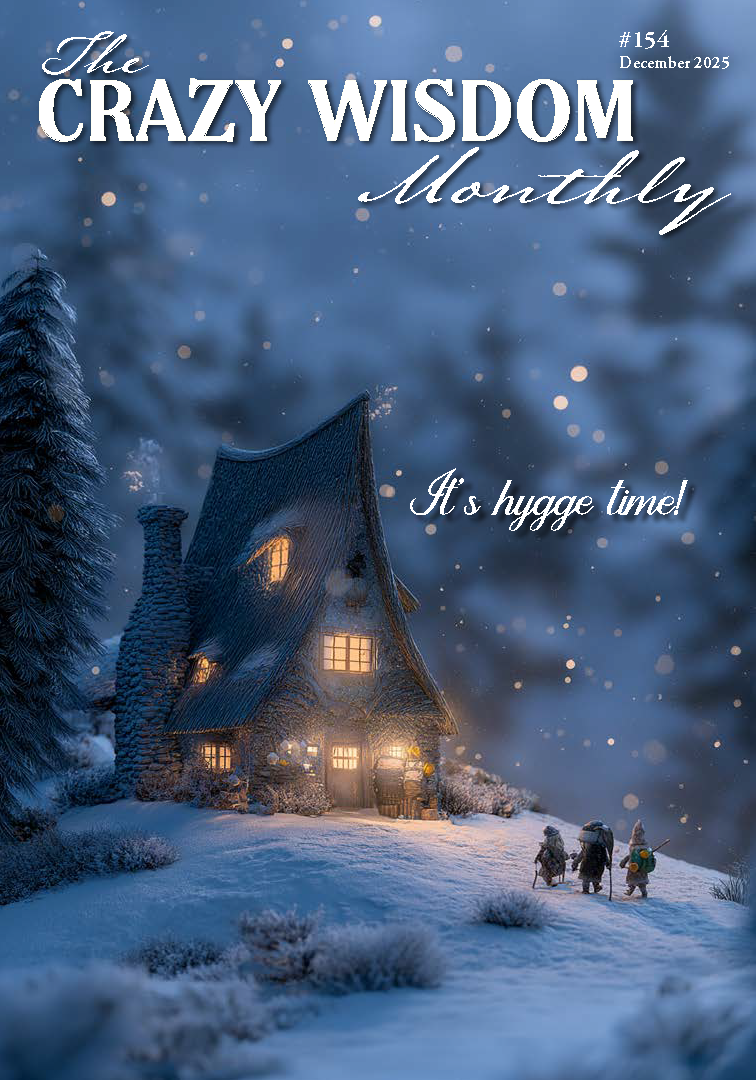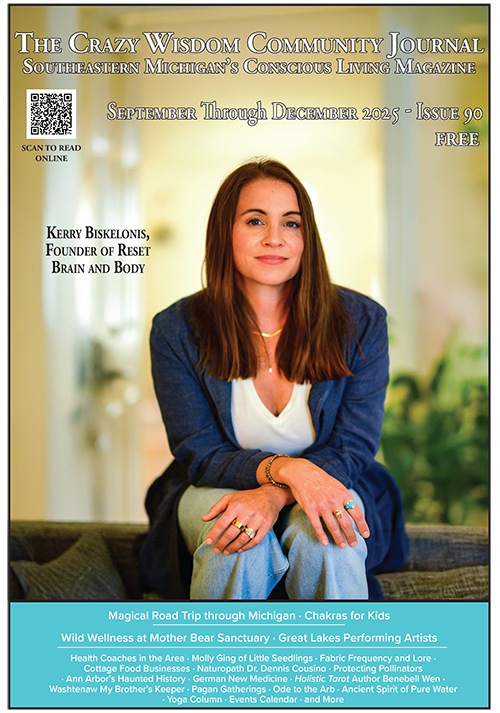By Sibel Ozer
Illness is the doctor to whom we pay most heed:
to kindness, to knowledge we make promises only; pain we obey.
Marcel Proust
Rollo May was the first to introduce me to the idea that there are different types of courage. I was reminded of this idea through a Facebook meme I came across recently which listed six types of courage. All of us are naturally courageous in some ways, and not so much in others. All of us could increase our resilience with different types of situations requiring courage, should we want to. Keep in mind Aristotle’s golden mean idea, which views too much courage as recklessness, and too little as cowardice.
Physical courage is about the ability to tolerate physical discomfort and to withstand pain. There are those of us that would not reveal a state secret under torture, while others would sell their mother at the mention of it—no judgment intended. The reason martyrs make it into history books is because there are so few of us willing to give our lives, let alone endure pain, even for a cause we believe in.
We have a particularly problematic relationship with pain in America that is both systemic (the medical field views pain as the 5th vital sign to be assessed and managed alongside temperature, blood pressure, respiratory rate and heart rate), and at the level of the individual psyche that views it as something to be avoided at all cost. Having grown up in a Middle Eastern culture where pain is viewed not only a part of life but often romanticized, I remember being surprised at the difference in our approaches to dealing with pain more then once.
My second son was born in America and I remember friends recommending teething tablets, which our pediatrician countered with a recommendation of baby acetaminophen. I thought, dear God, it starts when they are babies! I secretly chose to let my son bear the discomfort as part of my desire to build some resilience for it. When my older son broke his wrist playing soccer he was offered heavy-duty painkillers at the hospital. I remember being proud of him when he told the nurses that he would manage with Tylenol. At age 15 we had managed to impart to him the idea that tolerating some pain made him tougher/cooler—when really it taught him to have some grit.
I also remember the different responses patients from different countries gave to the pain scale when I worked as a translator at the Cleveland Clinic. Cultural as well as personal factors make a difference. It would be worthwhile to ponder the mental constructs we hold around pain, how we regard it conceptually, which in turn effects how we manage the sensations in our individual bodies.
Freud’s pleasure principle explains that we are wired to “seek pleasure and avoid pain” in general. No one in their right mind would seek pain intentionally of course, however, it is important to come to terms with the fact that pain is very much an inescapable part of life, no different than aging, illness, and death. Buddha’s first noble truth was that life consists of pain, suffering, and misery. Not all the time, of course, but definitely sometimes. Total/absolute pain avoidance is simply not compatible with life.
It seems valuable therefore to invest in efforts to develop resilience in the face of unavoidable pain at least as much as we invest in our efforts to get rid of pain when we can. We seem to be experts in the latter and not as well versed with the former. I highly recommend Paul Brand’s book The Gift of Pain as an exercise in contemplation on this topic, the title alone suggests that this avoid at all cost approach might indeed not be something desirable for us after all.
It is unfortunately also part of human nature to not be as aware of things when they are readily available to us, and this includes our phenomenally intricate pain mechanism. Few of us give thanks when we stub a toe, unawares that it is this very uncomfortable sensation that keeps us safe from all manner of injury that would lead us to lose our toes and fingers all together.
Social courage is about the ability to be oneself unapologetically. That is, to be able to not hold back due to social pressures to express and act on one’s thoughts and feelings. The polarity of social courage has the social pariah on the one end and the prude behaving in accordance with the ideal norms of society to the extreme, on the other. Social courage presents a conundrum for all of us given we are social animals brought up within circles of social influence (family, culture, the Zeitgeist) giving us mixed messages about individuality and conformity. Many inspirational quotes are to be found on the downside of following the crowd all the while group think in general abhors individuality.
I recently visited with a high school friend who had retired from a well-respected position at the university in her mid 40’s to the chagrin of her family and friends. She moved to a southern village and downsized significantly, adjusting to a life of simplicity but not scarcity, discovering a way of sustainable living with an inverted work/leisure lifestyle. She was noticing how since the Covid-19 pandemic more people were acknowledging the value of her life choices than ever before. Sometimes it takes a great tragedy, or a societal shift for us to realize that our deeply held expectations aren’t truths written in stone, but are in fact artificial social agreements that can be altered. The ongoing and upcoming environmental disasters are likely to shake up a lot of the ways we have been living since the industrial revolution.
Moral courage has to do with doing the right things even when it is uncomfortable or unpopular. It is an added dimension to social courage that includes our ideas of what is right and wrong—in short, our concept of justice. People of the highest moral courage like Martin Luther King, Mother Teresa, and Gandhi not only went against societal expectations, but are also characterized by a deep element of caring about the situations of their fellow men. On the other end of the polarity our histories are filled with examples of moral depravity where people are taking part in all types of cruel, hurtful acts against other people, animals, or nature in the name of religion money, power, or some other individual benefit. We can all recognize the seeds of both tendencies, that of selfishness and selflessness within ourselves.
Emotional courage is about one’s ability to feel all one’s emotions without guilt or attachment. Most psychotherapists ,by nature, have a little extra emotional courage in that they voluntarily open themselves to witness uncomfortable human experiences, going against Freud’s pleasure principle. Our clients are the ones that ought to receive the Medal of Honor when it comes to emotional courage, as they are the ones feeling the difficult emotions.
I’ve often thought of people who struggle with depression as being emotionally courageous in terms of their openness to the suffering in the world that most of us guard against. Our varied defense mechanisms help shield us from a tremendous amount of emotional pain, and yet as always, there is a price to pay for the comfort they bring. We go around knowing about hunger, sexual trafficking, and environmental carnage without allowing ourselves to feel it, which of course results in a lack of action around problems that could in fact be remedied. We have a problem of either seeing the glass half full or half empty instead of taking it in, in its totality.
Intellectual courage is about maintaining the desire to continue learning throughout life, all the while one develops the humility to unlearn and relearn with an open and flexible mind. I personally deplore being fooled, which makes me resilient in terms of intellectual challenges. I’d rather be proven wrong and recognize the truth, than have my pride untarnished, but fail to recognize my ignorance. You’ll see ponderers, thinkers, and philosophers on one end of this spectrum and fanatics and dogmatists of all sorts on the other.
Spiritual courage has to do with prioritizing purpose and meaning in life and maintaining an attitude of deep love and respect toward all life, not excluding the self. This one seems to stand in opposition to rationality in that it requires the investigation and experiencing of things that go beyond the grasp of the intellect. People with great spiritual courage have worked hard to overcome their egoic tendencies. They often have tremendous humility and open mindedness mixed with a general sense of awe and wonder at life accompanying them at all times.
Since we are social animals existing within a field that has its own multilayered dynamics going on at any one time, it is worth contemplating the context within which we are asked to reach for courage. Different situations will demand that we cultivate different types of courage. If chronic pain suddenly becomes a part of our life it would be good to inquire into how we can flex our physical courage muscles. When the social matrix of our world changes, more social, intellectual or moral courage might be demanded of us. It helps to look at people who are good at it, for inspiration and guidance. It helps to know what our strengths and weaknesses are, so that we can notice and make adjustments, or change habits if needed. Flexibility is a good quality to foster in general as we work on cultivating more of the particular courage that our lives might be asking of us.
What type of courage do you naturally have more or less of?
What type of courage does the context of your life ask of you these days?
Sibel Ozer is a licensed professional counselor and board-certified art therapist currently doing private practice in downtown Ann Arbor. She started her career as a clinical psychologist working with earthquake survivors in Turkey. She continued her work in the United States in hospice, hospital, and private practice settings further specializing in grief, loss, and trauma. She is a certified EMDR practitioner and a graduate of the Gestalt Institute of Cleveland. She gives experiential workshops nationally and in her country of origin (Turkey) on different art therapy topics. Visit www.sibelozer.com, call (303) 905-1109, or email fireflyarttherapy@gmail.com.


































































































































































































Today, I am joined by three representatives of these secretive hidden peoples. Will you introduce yourselves, please?